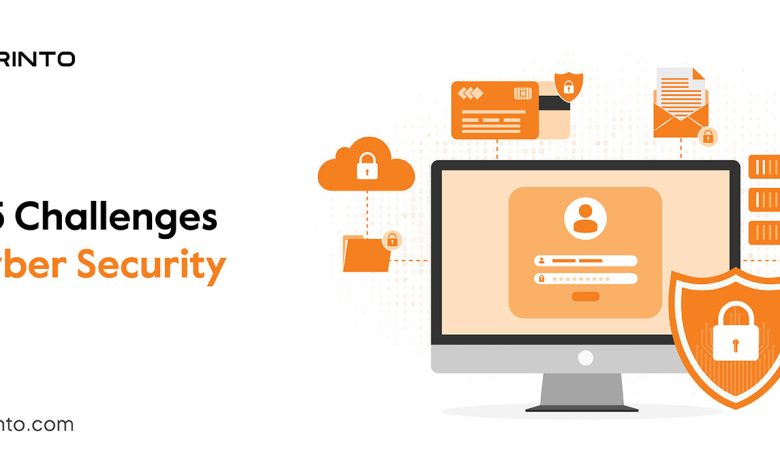Cryptocurrency and Cybersecurity: Future Challenges

- Understanding the intersection of cryptocurrency and cybersecurity
- Rising threats in the world of digital currencies
- Protecting your digital assets: Best practices for cryptocurrency security
- The evolving landscape of cyber attacks on cryptocurrency exchanges
- Regulatory challenges in ensuring cybersecurity for cryptocurrencies
- Emerging technologies to enhance the security of blockchain and cryptocurrencies
Understanding the intersection of cryptocurrency and cybersecurity
Cryptocurrency and cybersecurity are two interconnected aspects that play a crucial role in the digital landscape. Understanding the intersection of these two fields is essential for safeguarding assets and data in the ever-evolving online environment.
When it comes to cryptocurrency, security is paramount. The decentralized nature of cryptocurrencies makes them attractive targets for cybercriminals looking to exploit vulnerabilities in the system. As a result, ensuring robust cybersecurity measures is imperative to protect against potential threats and attacks.
One of the key challenges in the intersection of cryptocurrency and cybersecurity is the issue of wallet security. Cryptocurrency wallets, whether hardware or software-based, are prime targets for hackers due to the potential for financial gain. Implementing strong encryption and multi-factor authentication can help mitigate the risk of unauthorized access to wallets.
Another critical aspect to consider is the security of cryptocurrency exchanges. These platforms facilitate the buying, selling, and trading of digital assets, making them lucrative targets for cyber attacks. Implementing stringent security protocols, such as regular security audits and cold storage of funds, can help prevent breaches and safeguard user funds.
Furthermore, the rise of blockchain technology has introduced new opportunities for enhancing cybersecurity in the cryptocurrency space. The decentralized and immutable nature of blockchain makes it inherently secure, providing a transparent and tamper-proof record of transactions. Leveraging blockchain technology can help improve the overall security posture of cryptocurrency systems.
In conclusion, the intersection of cryptocurrency and cybersecurity presents both challenges and opportunities for stakeholders in the digital economy. By prioritizing security measures, implementing best practices, and leveraging innovative technologies, we can navigate the complexities of this dynamic landscape and ensure the integrity and security of digital assets.
Rising threats in the world of digital currencies
As digital currencies continue to gain popularity, they are also attracting the attention of cybercriminals who see them as a lucrative target. The rising value of cryptocurrencies has made them a prime target for hackers looking to exploit vulnerabilities in the system. This has led to an increase in cyber attacks targeting cryptocurrency exchanges and wallets.
One of the biggest threats facing the world of digital currencies is the risk of theft. Hackers have been able to steal millions of dollars worth of cryptocurrencies through various means, including phishing attacks, malware, and hacking into exchanges. These thefts can have a devastating impact on both individuals and businesses who rely on cryptocurrencies for their financial transactions.
Another major threat to the security of digital currencies is the risk of fraud. With the anonymous nature of many cryptocurrencies, it can be difficult to trace transactions and verify the identity of users. This has made it easier for scammers to take advantage of unsuspecting individuals and trick them into sending their cryptocurrencies to fraudulent addresses.
As the use of digital currencies continues to grow, it is essential for individuals and businesses to take steps to protect themselves from these rising threats. This includes using secure wallets, implementing two-factor authentication, and staying vigilant for signs of suspicious activity. By taking these precautions, we can help ensure that the future of digital currencies remains secure and reliable.
Protecting your digital assets: Best practices for cryptocurrency security
When it comes to protecting your digital assets in the world of cryptocurrency, it is crucial to follow best practices for security. Here are some tips to help you keep your cryptocurrency safe:
- Use a secure wallet: Make sure to store your cryptocurrency in a wallet that offers multi-factor authentication and encryption to prevent unauthorized access.
- Keep your private keys safe: Your private keys are the keys to your cryptocurrency assets. Be sure to store them in a secure and offline location to avoid hacks.
- Be cautious with online transactions: Only transact with trusted sources and double-check addresses before sending cryptocurrency to prevent scams.
- Update your software regularly: Make sure to keep your wallet software and operating system up to date to protect against security vulnerabilities.
- Use strong passwords: Create complex passwords for your wallet and exchange accounts to make it harder for hackers to gain access.
By following these best practices for cryptocurrency security, you can help protect your digital assets from cyber threats and keep your investments safe.
The evolving landscape of cyber attacks on cryptocurrency exchanges
The evolving landscape of cyber attacks on cryptocurrency exchanges has become a major concern in the digital asset industry. As the popularity of cryptocurrencies continues to grow, so does the interest of cybercriminals in exploiting vulnerabilities in exchange platforms. These attacks can result in significant financial losses for both the exchanges and their users, as well as damage to the reputation of the entire cryptocurrency ecosystem.
One of the most common types of cyber attacks on cryptocurrency exchanges is the theft of funds through hacking. Hackers use various techniques such as phishing, malware, and social engineering to gain access to exchange wallets and steal digital assets. In some cases, hackers have been able to exploit vulnerabilities in the exchange’s security systems to manipulate trading volumes or prices, leading to market manipulation and fraud.
Another growing threat to cryptocurrency exchanges is ransomware attacks, where hackers encrypt exchange data and demand a ransom in exchange for decryption keys. These attacks can disrupt exchange operations and lead to data loss if the ransom is not paid. Additionally, distributed denial-of-service (DDoS) attacks are frequently used to overwhelm exchange servers with traffic, causing downtime and disrupting trading activities.
To combat these evolving cyber threats, cryptocurrency exchanges must invest in robust cybersecurity measures such as multi-factor authentication, encryption, and regular security audits. It is also essential for exchanges to educate their users about best practices for securing their accounts and funds, such as using hardware wallets and avoiding suspicious links or emails.
In conclusion, the landscape of cyber attacks on cryptocurrency exchanges is constantly evolving, requiring proactive measures to protect digital assets and maintain trust in the industry. By staying vigilant and implementing strong security protocols, exchanges can mitigate the risks posed by cybercriminals and ensure the long-term viability of cryptocurrencies as a secure form of digital investment.
Regulatory challenges in ensuring cybersecurity for cryptocurrencies
Regulatory challenges play a crucial role in ensuring the cybersecurity of cryptocurrencies. As the popularity of digital currencies continues to rise, governments and regulatory bodies face the daunting task of implementing effective measures to protect against cyber threats. Here are some of the key challenges:
- Regulatory Framework: One of the main challenges is the lack of a comprehensive regulatory framework for cryptocurrencies. This makes it difficult for authorities to monitor and enforce cybersecurity measures across different platforms.
- Global Coordination: Cryptocurrencies operate on a global scale, making it challenging for regulators to coordinate efforts across jurisdictions. This lack of coordination can create loopholes that cybercriminals can exploit.
- Compliance: Ensuring compliance with cybersecurity regulations is another major challenge. Many cryptocurrency exchanges and platforms struggle to keep up with evolving regulatory requirements, leaving them vulnerable to cyber attacks.
- Technology Complexity: The complex nature of blockchain technology and cryptocurrencies presents unique challenges for regulators. Understanding the intricacies of these technologies is essential for developing effective cybersecurity measures.
- Privacy Concerns: Balancing the need for cybersecurity with user privacy is a delicate task. Regulators must find ways to protect sensitive information without compromising the anonymity that cryptocurrencies offer.
In conclusion, addressing regulatory challenges is essential for ensuring the cybersecurity of cryptocurrencies. By developing a comprehensive framework, promoting global coordination, enhancing compliance efforts, understanding technology complexities, and addressing privacy concerns, regulators can help safeguard the future of digital currencies against cyber threats.
Emerging technologies to enhance the security of blockchain and cryptocurrencies
Emerging technologies play a crucial role in enhancing the security of blockchain and cryptocurrencies. These advancements are essential in addressing the future challenges faced by the cryptocurrency industry.
One such technology is **multi-factor authentication**, which adds an extra layer of security by requiring users to provide multiple forms of verification before accessing their accounts. This helps prevent unauthorized access and protects sensitive information from cyber threats.
**Biometric authentication** is another innovative technology that is being increasingly used to enhance security in the cryptocurrency space. By using unique biological traits such as fingerprints or facial recognition, biometric authentication provides a more secure way of verifying user identities.
**Quantum-resistant cryptography** is also gaining traction as a way to protect blockchain networks from potential threats posed by quantum computers. This type of encryption ensures that data remains secure even in the face of advanced computing technologies.
**Secure hardware wallets** are becoming more popular among cryptocurrency users as a way to securely store their digital assets offline. These wallets provide an extra layer of protection by keeping private keys offline and away from potential online threats.
In conclusion, the development and implementation of these emerging technologies are crucial in enhancing the security of blockchain and cryptocurrencies. By staying ahead of cyber threats and adopting innovative security measures, the cryptocurrency industry can continue to grow and thrive in a secure environment.



